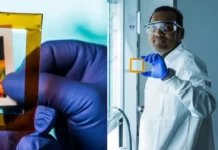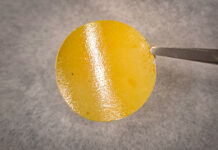
A team from Sechenov University and Russian colleagues developed a method for obtaining substances that accelerate the binding of hydrogen molecules with hydrocarbons via double bonds. The peculiarity of this approach lies in the impregnation of a polymeric carcass with rhodium- and palladium-containing salts in the supercritical CO2 environment. The latter is an eco-friendly alternative of traditional organic solvents. The work was published in The Journal of Supercritical Fluids.
Modern-day solid catalysts (compositions that accelerate chemical reactions) mainly consist of a porous polymer with a metal or its oxide on the surface. A traditional way of creating such composites includes the impregnation of the carcass with a metal-containing substance in the environment of organic solvents. Recently, chemists have been focusing on the development of new methods, including those based on the use of supercritical liquid CO2 (at the temperature over 31° and pressure above 73 atmospheres). This system has the characteristics of both a liquid and a gas, and the environment is able to solve a number of non-organic substances as well as to secure their fast movement in the mixture. Compared to organic solvents, supercritical CO2 is safe, cheap, and easy to remove.
“Currently, there are few studies covering the synthesis of metal-polymeric catalysts in the environment of supercritical carbon dioxide. In our work, we showed the efficiency of this method and demonstrated the high activity of the obtained substances in the reaction of hydrogen combines with organic molecules with double bonds (i.e. their hydrogenation),” says Petr Timashev, Ph.D. in chemistry, director of the Institute of Regenerative Medicine at I.M. Sechenov First Moscow State Medical University.
Read more: Scientists suggest an eco-friendly way of obtaining highly active catalysts
Image courtesy of phys.org
Relate Links:
The vulnerability of a promising two-dimensional semiconductor to air, and discover new catalyst
Computing catalysts—team unlocks the molecular secrets to a popular polymer















